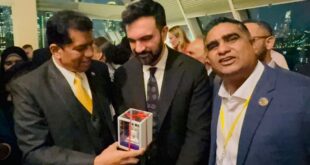Allama Iqbal, the visionary poet-philosopher, is one of Urdu literature’s towering figures. His poetry is a profound exploration of selfhood, spirituality, freedom, and the potential of humanity. Through his couplets, Iqbal inspired millions to seek inner strength, strive for greatness, and reconnect with their true purpose. These well-known verses from his works reflect his signature themes such as self-realization, ambition, spirituality, and societal change. Here are 10 of Allama Iqbal’s verified, powerful Urdu couplets:
1. Khudi Ko Kar Buland Itna…
“Khudi ko kar buland itna ke har taqdeer se pehle,
Khuda bande se khud poochhe, bata teri raza kya hai.”
This couplet emphasizes self-empowerment and reaching such heights of personal development that one can shape their own destiny.
2. Sitaron Se Aage Jahan Aur Bhi Hain…
“Sitaron se aage jahan aur bhi hain,
Abhi ishq ke imtihan aur bhi hain.”
Iqbal reminds us that the journey doesn’t end at success. There are endless possibilities beyond, and life’s trials are ongoing.
3. Tu Shaheen Hai, Parwaaz Hai Kaam Tera…
“Tu shaheen hai, parwaaz hai kaam tera,
Tere saamne aasmaan aur bhi hain.”
Here, the eagle (Shaheen) is a symbol of independence and high ambition. Iqbal encourages the reader to soar higher, never settling for less.
4. Jis Khait Se Dehqan Ko Muyassar Nahin Rozi…
“Jis khait se dehqan ko muyassar nahi rozi,
Us khait ke har khosha-e-gandum ko jala do.”
Iqbal’s revolutionary spirit speaks out against oppression, advocating for action when the fruits of labor are unjustly taken from the worker.
5. Mohabbat Mujh Se Wo Insan Mangti Hai…
“Mohabbat mujh se wo insaan mangti hai,
Jo aik se ho aur doosra bhi usi ka ho.”
Iqbal reflects on love, where unity of thought and being is essential. It points to a higher form of love—one that is singular and focused on a higher cause.
6. Na Ho Naumeed, Naumeedi Zawaal-e-Ilm-O-Irfan Hai…
“Na ho naumeed, naumeedi zawaal-e-ilm-o-irfan hai,
Umeed-e-mard-e-momin hai Khuda ke raazdanon mein.”
This couplet is about hope. Iqbal asserts that hopelessness is the death of knowledge and wisdom, while the hope of a true believer aligns with the secrets of the universe.
7. Hawa-e-Taaza Rakhti Hai Shaheenon Ko Garam Udaan Mein…
“Hawa-e-taaza rakhti hai shaheenon ko garam udaan mein,
Guzar waqt-e-qalander mein hai baqi shaheenon ka.”
Iqbal’s message here is about the renewal and persistence required for success. Just like eagles thrive in fresh air, people must embrace change and new challenges to grow.
8. Zara Nam Ho To Yeh Mitti Bari Zarkhez Hai Saqi…
“Zara nam ho to yeh mitti bari zarkhez hai saqi,
Ke is mein qawmon ke surma bazaat chhupay hain.”
Iqbal speaks about the potential of nations. Just a little nurturing can unlock the latent greatness within a community or society.
9. Wo Aik Sajda Jise Tu Giraan Samajhta Hai…
“Wo aik sajda jise tu giraan samajhta hai,
Hazaar sajdon se deta hai aadmi ko nijaat.”
In this couplet, Iqbal reflects on the spiritual freedom that comes from sincere submission to a higher power, which is more liberating than mechanical acts of worship.
10. Hazaroon Saal Nargis Apni Be-Noori Pe Roti Hai…
“Hazaroon saal nargis apni be-noori pe roti hai,
Badi mushkil se hota hai chaman mein deedawar paida.”
This famous couplet speaks of the rarity of great leaders and visionaries. The world waits centuries for someone with true insight to emerge.
 Gawah (The Witness) – Hyderabad India Fearless By Birth, Pristine by Choice – First National Urdu Weekly From South India – Latest News, Breaking News, Special Stories, Interviews, Islamic, World, India, National News
Gawah (The Witness) – Hyderabad India Fearless By Birth, Pristine by Choice – First National Urdu Weekly From South India – Latest News, Breaking News, Special Stories, Interviews, Islamic, World, India, National News






